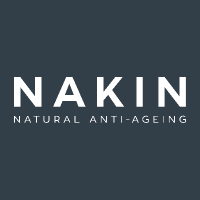Which Oil is Closest to Our Skin’s Sebum?

One of the questions that we sometimes receive from customers is asking which oil is closest to our skin's natural sebum. The reason that people want the answer to this is because when a plant oil has similar properties to our own natural skin sebum, it means that it works harmoniously with our skin to heal, hydrate and nourish.
There is actually a few plant oils that are close to our skin’s sebum and we use them in our Nakin Natural Anti-Ageing products, because they are also helpful for skin. They sink in beautifully as you can imagine, and also provide lots of vitamins, minerals, and omega oils to condition and protect.
This post is all about plant oils and their relation to our skin's sebum. In today's society, there has been a shift towards using natural products in all aspects of our lives, including skincare. One trend that has emerged is using natural skincare and good brands will use lots of plant oils as a replacement for synthetic moisturisers. But with so many options available, it can be overwhelming to know which plant oil is best for our skin. In this article, we will explore the similarities between plant oils and our skin's natural sebum and discuss which plant oil is closest in composition.
Understanding Our Skin's Sebum
Before diving into the world of plant oils, it is important to understand what exactly our skin's sebum is and its purpose. Sebum is an oily substance secreted by the sebaceous glands in our skin. Its main function is to protect and lubricate our skin, keeping it healthy and hydrated.
The Benefits of Using Plant Oils
Plant oils have long been used for their numerous benefits in skincare. They are rich in fatty acids, antioxidants, and other nutrients that nourish and protect our skin. Unlike traditional moisturisers, plant oils are also free from harsh chemicals and synthetic ingredients, making them a much gentler option for sensitive skin.
Finding the Perfect Match
When choosing good face products, it is always helpful to use ones that have plant oils which are as similar as possible to our skin's sebum. This will help ensure that the product can effectively penetrate and nourish our skin without causing any adverse reactions. So which plant oil is closest in composition to our skin's sebum?
The Winner: Jojoba Oil
The winner is jojoba oil, and this is why we use it so much in our natural skincare. This versatile plant oil closely resembles human sebum in terms of chemical composition and molecular structure. It is rich in fatty acids, including oleic and linoleic acids, which are also naturally found in our skin's sebum. This makes jojoba oil perfect for all skin types, including oily and acne-prone skin.
Other Options
While jojoba oil takes the top spot, there are other plant oils that we use and also have a similar composition to our skin's sebum. These include squalane, sweet almond oil, and grapeseed oil. Each of these oils has its own unique benefits for the skin and can be used as an alternative to jojoba oil.
Using products with plant oils in your skincare routine can have numerous benefits for our skin. By choosing a plant oil that closely resembles our skin's sebum, we can ensure that it effectively nourishes and protects our skin without causing any adverse reactions. Whether you choose jojoba oil or one of the other similar oils mentioned, incorporating plant oils into your skincare routine is a natural and gentle way to achieve healthy, radiant skin.


Leave a comment